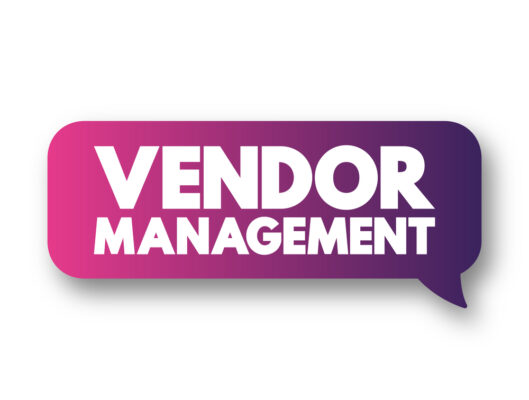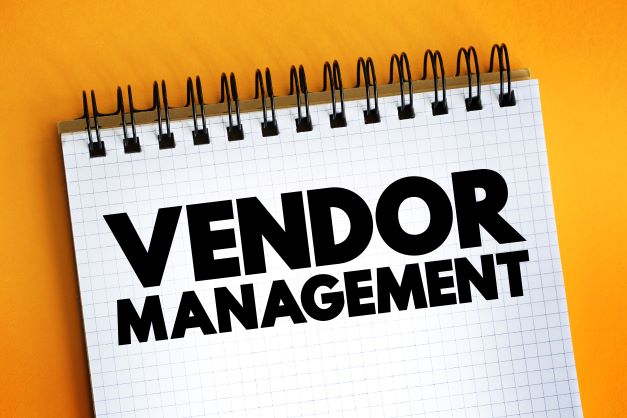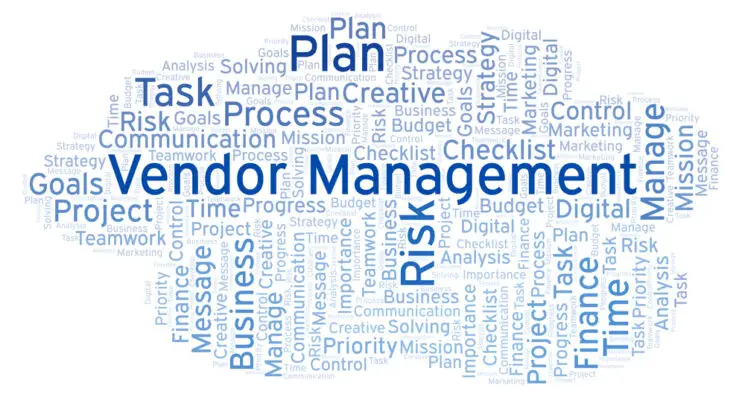Evaluating vendor proposals is a critical step in the procurement process. Here are some steps to guide you through this process:
Understand Your Needs: Before you can evaluate vendor proposals, you need to have a clear understanding of what you need. This includes the scope of the project, the timeline, and the budget.
Establish Evaluation Criteria: Determine the criteria you will use to evaluate the proposals. This could include cost, the vendor’s experience and reputation, the quality of their products or services, their proposed timeline, and understanding of your project.
Review Proposals: Read each proposal carefully and evaluate it based on your established criteria. Look for vendors who have taken the time to understand your needs and have proposed a solution that fits those needs.
Check References: Contact the vendor’s references to learn more about their past performance. Ask about their reliability, quality of work, and how they handled any issues that arose.
Interview Vendors: Schedule interviews with the top vendors to better understand their proposals and how they work. This is also a good opportunity to ask any questions about their proposal.
Compare Proposals: Once you’ve evaluated each proposal individually, compare them. This can help you see which vendors stand out and which ones might not be a good fit.
Negotiate: If you have a preferred vendor but there are aspects of their proposal you’re not happy with, such as the cost or timeline, try negotiating with them to see if you can reach a compromise.
Make a Decision: After evaluating all the proposals, it’s time to decide. Remember, the cheapest option isn’t always the best. Consider all aspects of the proposal and choose the best vendor for your needs and budget.
It is common for companies to outsource certain services or products to vendors. This can be a cost-effective way to obtain specialized expertise or resources that are not available in-house.
However, choosing the right vendor can be a complex and time-consuming process, especially when dealing with multiple proposals from different vendors.
Evaluating vendor proposals involves careful analysis of various factors such as cost, quality, reliability, and compatibility with your business needs. It requires a systematic approach that takes into account both quantitative and qualitative aspects of each proposal.
In this article, we will discuss how to evaluate vendor proposals effectively so that you can make informed decisions that align with your business goals and objectives.

Define Your Business Needs and Goals
To effectively evaluate vendor proposals, it is crucial to objectively define your business needs and goals in a manner that is free of personal bias or subjective preferences.
This requires an in-depth understanding of your organization’s specific requirements and constraints. You should consider budget, timelines, technical specifications, and performance metrics.
Defining your business needs and goals starts with identifying the underlying problem or opportunity that you are seeking to address. This could be anything from improving operational efficiency to expanding into new markets.
Once you have identified the core objective, you must break it down into specific requirements to guide your evaluation process.
For example, if you are looking for a new supply chain management system, you may need to specify criteria such as real-time inventory tracking, automated order processing, and integration with existing ERP systems.
Finally, it’s important to ensure that your objectives align with the overall strategic direction of your organization. This involves assessing the potential impact of any proposed changes on other areas of the business and considering how they fit within broader goals such as revenue growth or customer satisfaction.
Research Vendors
One critical step in the process of selecting a suitable vendor is to conduct thorough research on potential candidates. This means investigating their reputation, track record, expertise, and experience in providing similar services or products. Here are some key steps to follow when researching vendors:
- Determine what you want: Before researching vendors, it’s essential to have a clear understanding of your business needs and goals. This will help you identify vendors who can provide your specific solutions.
- Use multiple sources: When researching vendors, it’s important to use multiple sources of information such as online reviews, industry publications, referrals from colleagues and peers, etc.
- Evaluate their expertise: Vendors should be able to demonstrate expertise in your area of need by providing case studies or references from other clients they’ve worked with.
- Check for financial stability: It’s important to ensure the vendor has solid financial backing to provide quality service.
Conducting thorough research on potential vendors before making any decisions, businesses can ensure that they find a partner who meets their specific needs and delivers value for money over the long term.
Analyze Proposals
The process of analyzing vendor proposals is critical in determining which one provides the best value for an organization. It involves scrutinizing each proposal’s details to evaluate its feasibility, cost-effectiveness, and alignment with organizational goals. This stage requires careful consideration of the information provided by vendors.
To analyze a proposal effectively, it is essential to review the technical specifications and requirements. The vendor must provide detailed information on delivering their services or products, including timelines and milestones.
Additionally, any vendor assumptions should be clarified to avoid potential misunderstandings during implementation.
Another crucial aspect of analyzing proposals is assessing their overall cost-effectiveness. Proposals should include all costs associated with delivering the product or service, including implementation costs, maintenance fees, and training expenses.
It is essential to compare these costs across different proposals while considering their respective benefits to determine which option offers the best value for money.
Analyzing vendor proposals takes time but is necessary when choosing the right partner for your organization. Evaluating each proposal based on its feasibility, cost-effectiveness and alignment with organizational goals will help ensure that you select a vendor who can meet your needs both now and in the future.
Conduct Interviews
During the interview stage, potential partners are questioned to gather more information and insight into their capabilities and how well they align with the organization’s goals.
The primary goal of conducting an interview is to assess the vendor’s capacity to deliver quality services or products that meet the business requirements. Moreover, interviews provide a platform for evaluating the partner’s communication skills, professionalism, and willingness to collaborate.
To conduct effective interviews, it is important to have a clear framework that outlines what needs to be addressed during the conversation. Below are some tips on how best to conduct vendor interviews:
- Prepare a list of questions: Before starting an interview, it is essential to have a list of relevant questions that will help you evaluate the vendor’s experience and capabilities fully.
- Create an environment for open communication: During an interview, creating an atmosphere where both parties feel comfortable enough to express themselves openly can significantly improve its effectiveness.
- Evaluate responses critically: After conducting several interviews, it can be challenging not to fall into patterns of familiarity or biases towards specific vendors. Therefore, it is important always to critically evaluate responses from every vendor.
- Follow up after the Interview: After completing all your interviews with potential vendors, follow up by sending feedback or requesting additional information about any areas you found unclear during your conversations.
To get maximum value from these conversations requires careful planning beforehand so that key issues are addressed head-on during discussions while ensuring openness between both parties throughout the process.
Make Your Decision
To finalize the selection process, it is essential to carefully consider all gathered information and make a well-informed decision that aligns with the organization’s goals.
It is important to thoroughly review all vendor proposals and objectively evaluate each one based on their strengths and weaknesses. The decision-making process should involve key organizational stakeholders to ensure everyone’s needs are considered.
This will help ensure consistency in the evaluation process and allow for objectively comparing each proposal. These criteria should be aligned with the organization’s goals and objectives and any specific requirements outlined in the request for proposal (RFP).
Deciding on which vendor to select involves balancing various factors such as cost, quality of service, reputation, and fit with organizational culture. It may also be helpful to conduct reference checks or site visits before finalizing a decision.
Taking a thorough approach and involving key stakeholders throughout the process, organizations can feel confident they are making an informed decision that will benefit their operations in the long run.

Frequently Asked Questions
What kind of legal agreements should be put in place with vendors?
Legal agreements with vendors should include terms and conditions related to the nature of the goods or services being provided, payment arrangements, delivery timelines, warranties, liability clauses, confidentiality provisions, intellectual property rights, termination clauses and dispute resolution mechanisms.
How can you ensure that vendors will meet their proposed timelines and deliverables?
Vendors’ adherence to proposed timelines and deliverables can be ensured by setting clear expectations, monitoring progress, establishing penalties for delays or breaches, and including performance metrics in contracts. Regular communication and collaboration also aid in successful vendor management.
What methods are in place for monitoring and addressing potential vendor performance issues?
Methods for monitoring and addressing potential vendor performance issues may include establishing performance metrics, conducting regular check-ins, and implementing a clear escalation process.
These measures help ensure the timely detection of issues and prompt resolution to minimize project delays or failures.
How can you negotiate pricing and terms with vendors, and what factors should be considered?
Factors such as market rates, volume discounts, payment terms, delivery schedules, and warranties must be considered when negotiating pricing and terms with vendors. It is important to reach a mutually beneficial agreement that meets the needs of both parties.
What kind of ongoing support and maintenance can vendors expect after the initial project is complete?
Vendors typically provide ongoing support and maintenance services after the completion of a project. The level and type of support may vary depending on the terms agreed upon in the contract. It is important to clarify these aspects during negotiations.

Conclusion
When evaluating vendor proposals, it is essential to take a structured approach that ensures your business needs and goals are met. The process begins with defining your requirements and researching potential vendors. This allows you to create a shortlist of options for further analysis.
Once you have received proposals from vendors, it is crucial to evaluate them thoroughly. This involves examining each vendor’s technical specifications, pricing, and service level agreements.
Additionally, conducting vendor interviews can provide valuable insights into their capabilities and align them with your expectations.
Ultimately, selecting the right vendor requires careful consideration of all factors involved in the decision-making process.
It is vital to remember that this process takes time; however, it’s worth taking the necessary measures to ensure long-term success for your organization.

Chris Ekai is a Risk Management expert with over 10 years of experience in the field. He has a Master’s(MSc) degree in Risk Management from University of Portsmouth and is a CPA and Finance professional. He currently works as a Content Manager at Risk Publishing, writing about Enterprise Risk Management, Business Continuity Management and Project Management.

